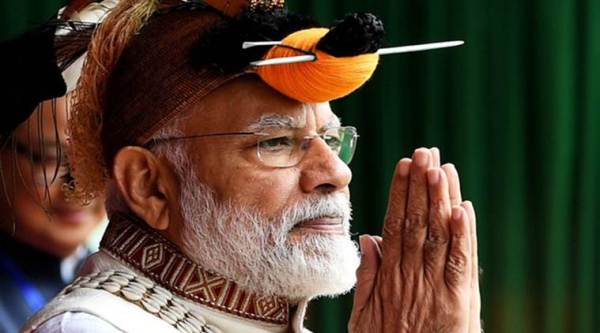Written by Jean Drèze |Published: February 16, 2019 12:14:22 am
Rash U-turns, half-baked plans
Social policy is in danger of getting lost in electoral histrionics.

As the country inches towards parliamentary elections, a deep confusion pervades the realm of social policy. When the Narendra Modi government came to power five years ago, there were high expectations of a rollback in welfare schemes. The previous government, so went the story, had gone overboard with social spending, and Modi would set this right. In fact, the UPA government had only initiated a much-needed revamping of India’s underdeveloped social sector, with some important results (as we learnt later from the fourth National Family Health Survey and other sources). But corporate-sponsored think tanks, generally hostile to social spending, preferred to argue that it was time to rein in the welfare state.
Until recently, the Modi government seemed to abide by that script. It showed little interest in social policy during the last five years. The 2015-16 Union Budget gave dramatic expression to this indifference, with deep cuts in allocations for many social programmes. True, these could be partly justified on the grounds that the states were receiving a higher share of the indivisible pool of taxes. But the cuts went further, and the axe fell particularly heavily on children, with initial cuts of around 36 per cent and 50 per cent for midday meals and the Integrated Child Development Services respectively. When I asked a very senior finance ministry official, one year later, how this happened, he first said that he was not aware of it and then explained that the cuts had been made at the last minute, without paying much attention to the details. This speaks volumes.
There are many other examples of the indifference if not hostility of the central government to social policy in the last five years. Maternity entitlements, a legal right of all Indian women (except those already covered in the formal sector) under the National Food Security Act 2013, were ignored for years and are brazenly violated to this day. The rights of workers employed under the National Rural Employment Guarantee Act have also been undermined by budget crunches, erratic wage payments and the vagaries of technocracy. The central government’s contribution to social security pensions for the elderly has been frozen at a measly Rs 200 per month, despite repeated appeals for more from 60 eminent economists, among others. With the partial exception of the Swachh Bharat Abhiyan, there have been no major initiatives in the social sector in the last five years. Most of the government’s efforts have gone into promoting Aadhaar and saving money rather than protecting people’s entitlements.
However, the NDA government seems to be changing gear if not making a U-turn. Suddenly, it has rediscovered that millions of poor people in India desperately need public support for their survival and wellbeing. As a starter, the government announced a grand health insurance scheme, Pradhan Mantri Jan Arogya Yojana, which claims to cover up to Rs 5 lakh of health expenditure every year for 10 crore families. It is another matter that this is actually a hospitalisation insurance scheme, with a tiny budget. In the same vein, the finance minister recently announced a mega scheme for contributory pensions in the informal sector. Here again, the claims and promises are out of gear with actual budget commitments (just Rs 500 crore for now), but they could serve the real purpose — winning votes. Meanwhile, the budget for non-contributory pensions for widows and the elderly was quietly reduced by more than Rs 600 crore.
The finance minister did allocate big money (Rs 75,000 crore) for the new scheme of direct cash transfers to farmers. This is the most tangible sign of the NDA government’s U-turn on social policy. Perhaps the scheme is better than nothing — the poor in India do need income support and this is one way of going about it. But is this the best way? Quite likely, many well-off farmers (or business owners who also happen to have a little land) will take advantage of the scheme while many vulnerable groups, starting with landless labourers, are left out.
The net result of this pre-electoral frenzy is an ill-thought assortment of second-rate social programmes. The Opposition parties, alas, are adding to the confusion. The Congress, in particular, seems to be committing itself to a very strange “minimum income guarantee” scheme. The idea, according to statements from Rahul Gandhi and P Chidambaram, is that if you earn less than the minimum income, the government will pay the difference. This makes no sense. For one thing, it is wholly impractical — how is the government supposed to estimate this income gap, household-wise? For another, it would mean that anyone who earns less than the minimum income might as well give up working, since the government is supposed to fill the gap anyway.









.png)




























No hay comentarios:
Publicar un comentario